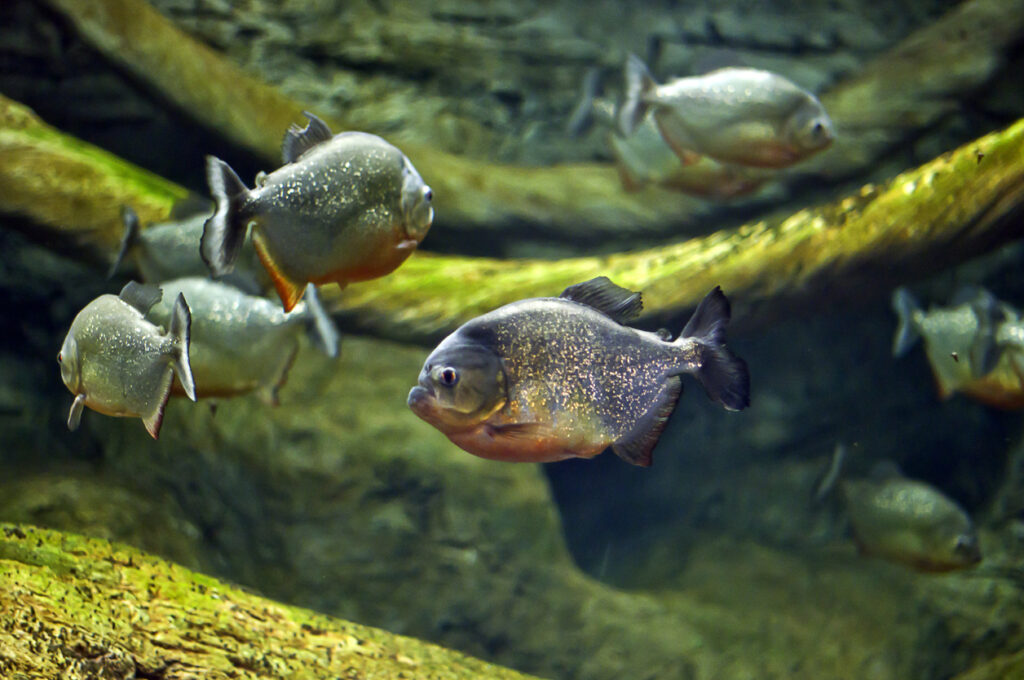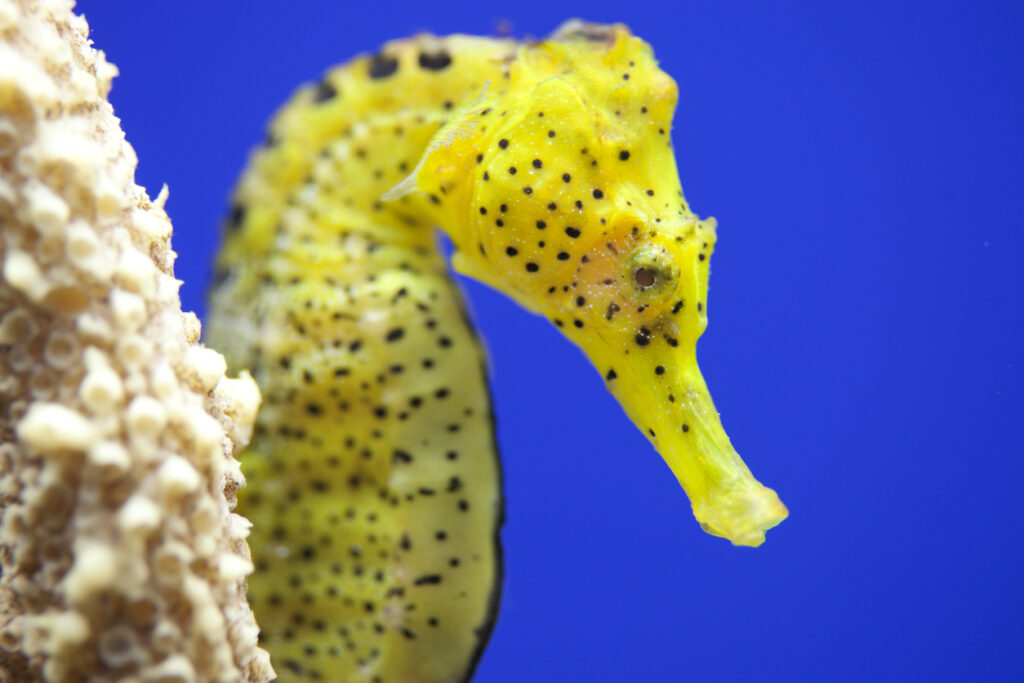It’s strange to think that fish can’t just cope in any water, and that different species need a specific environment to thrive. After all, water is just water, right? So why is there such a big distinction between freshwater and saltwater species?
As perplexing as this topic may be, the type of water can make a huge difference to a fish’s ability to survive and thrive. Even here at Blue Reef Portsmouth, we need to make sure that all our exhibits have the right type of water and conditions for the animals they contain, otherwise, we could have some very unhappy residents indeed.
So, to shine a light on why saltwater fish can’t live in freshwater and vice versa, this guide will look at the subtle differences between these two types of fish, including the physical differences that make them better suited to one type of water over the other.

What are freshwater fish?
Freshwater fish spend most of their lives in rivers, lakes and streams – water which has an average salt content of around 1%. Of all the world’s fish, around half live in freshwater, with some examples being the archerfish (Toxotidae), the red-bellied piranha (Pygocentrus nattereri), and some species of rays.
To survive in rivers and lakes, freshwater fish have developed several physiological differences from their sea-going counterparts. Their gills, for instance, are adapted to diffuse gases only found in freshwater, while also retaining a healthy level of salt within their bodies. They also have “super kidneys” which have evolved to expertly extract an optimal level of salt from their bodily fluids.

What are saltwater fish?
Saltwater fish live in the sea, where they’re able to cope with the high 3.5% salt content. Indeed, they rely on salt to survive and drink large quantities of it while they swim.
This is because they lose vast quantities of salt from their bodies due to the process of osmosis, so need to continuously consume more to remain healthy and keep their bodies in a state of physiological equilibrium. Basically, saltwater fish need salt to live.
Like freshwater fish, saltwater fish vary massively in size, shape, and preferred habitat. But regardless of where they live in the world’s oceans and what they look like, all saltwater species wouldn’t survive without a minimum of 3% salt content in the water.
Examples of saltwater fish to look out for at Blue Reef Portsmouth include the cute-as-a-button clownfish (Amphiprioninae), the magical seahorse (Hippocampus), the famous regal tang (Paracanthurus hepatus), and the beloved porcupine pufferfish (Diodon holocanthus).
What’s the difference between saltwater and freshwater?
As touched on in the sections above, the main difference between freshwater and saltwater is salt content. While freshwater typically has a salinity rating of around 1%, this same figure sits at around 3.5% in our seas and oceans.
A difference of 2.5% might not sound all that much, but it can make all the difference to the animals that live in these waters. While saltwater fish rely on a high salt content, a salinity of 3.5% would be fatal to freshwater species, which have evolved to cope with the lower salt content of freshwater rivers, lakes and streams.

There are other differences between freshwater and saltwater too, including:
- Saltwater contains lots more trace elements than freshwater, including chlorine, magnesium, calcium and potassium.
- The freezing point of freshwater is 0°C while the freezing point of saltwater is -2°C. This is, again, due to the volume of salt in the water.
- Saltwater is considerably denser than freshwater, which has had a significant influence on the evolution of saltwater fish, leading them to become more streamlined.
- While the chemical makeup of freshwater can change regionally depending on the environment and type of bedrock, saltwater is virtually the same wherever you are on Earth.
- Oxygen dissolves more easily in freshwater than in saltwater, which has a major impact on how resident fish are able to breathe and ventilate their gills.
Why can’t freshwater fish live in saltwater (and vice versa)?
From the amount of salt to the minerals they contain – there are lots of reasons why freshwater fish couldn’t survive in saltwater and vice versa. Although they might sound and look pretty similar on paper, these two distinct types of water are worlds apart from a fish’s point of view, with one being home and the other like an inhospitable, alien world.
Have you enjoyed this guide? Then why not book your tickets to Blue Reef Aquarium Portsmouth to learn more about saltwater and freshwater and meet some of the famous inhabitants of these contrasting waters.
